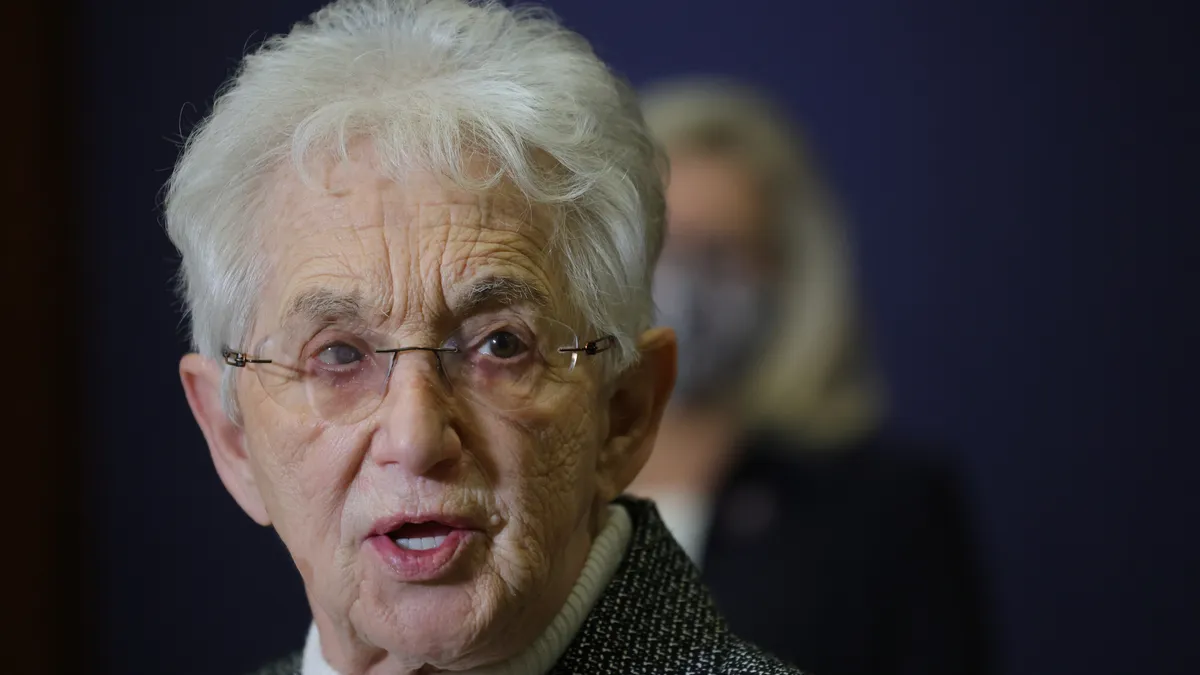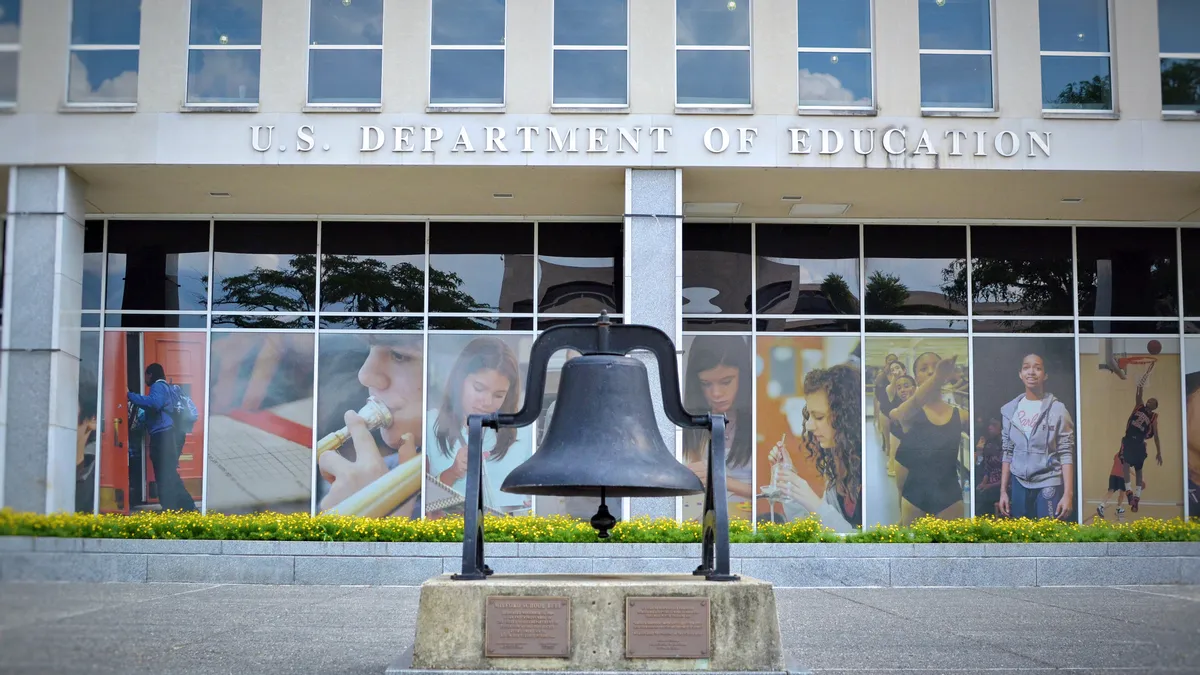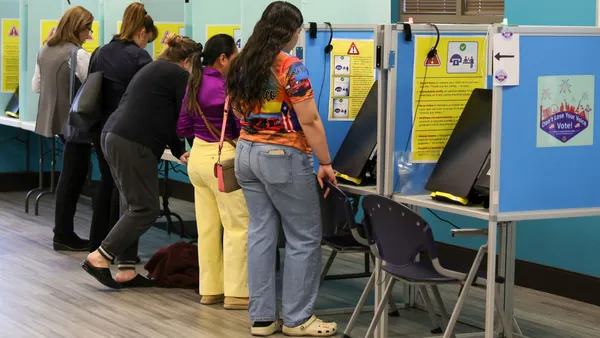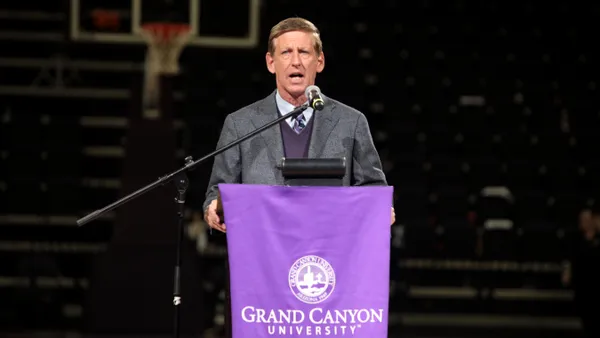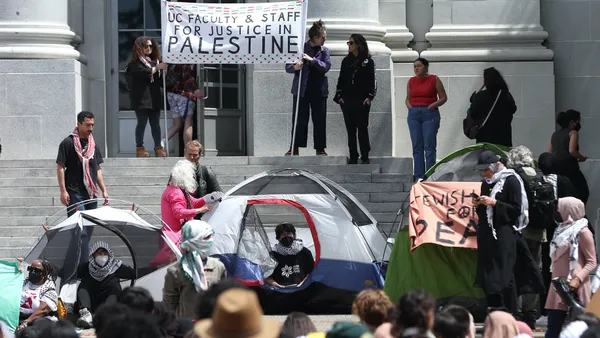Dive Brief:
- More than 120 Republican lawmakers are urging U.S. Education Secretary Miguel Cardona to rescind draft regulations aimed at providing debt relief to certain borrowers, such as those who have been in repayment for roughly 20 years or longer.
- The lawmakers argued in a letter last week that the regulatory proposals are “the latest in a string of reckless attempts” to transfer the student loan debt onto people who didn’t take out loans for college or already paid them off.
- The letter is one of 125,000-plus submissions the draft regulation received during a 30-day public comment period that ended May 17. Congress's top Republican education voices — Rep. Virginia Foxx, chair of the House education committee, and Sen. Bill Cassidy, ranking member of the Senate education committee — spearheaded the letter.
Dive Insight:
The draft regulations represent President Joe Biden’s second bid at mass student loan forgiveness after the U.S. Supreme Court struck down his initial proposal last summer. But the letter from dozens of lawmakers highlights the fierce resistance the proposed regulations face.
“The administration continues to use borrowers as political pawns knowing full well these proposed actions are illegal,” the lawmakers wrote. “The Supreme Court has made it abundantly clear that there is zero authority to write-off federal student loans en masse last June when the Department’s ‘Plan A’ was ruled unconstitutional.”
The Biden administration’s initial plan unsuccessfully cited a 9/11-era law that allows the education secretary to modify student loan programs during emergencies. This time, the Education Department is seeking to implement debt relief proposals through a different statute — the Higher Education Act.
The plan would waive accrued interest for borrowers who owe more than they initially took out and wipe out debts for those who entered repayment about 20 years ago or earlier. It would also provide debt relief for borrowers who attended colleges that didn’t provide them with “sufficient financial value,” such as if they misled students, according to the draft regulations. And it would cancel loans for borrowers who qualify for forgiveness under separate department programs but haven’t applied.
The department said in April that it plans to release another regulatory proposal “in the coming months” that would provide relief to borrowers experiencing financial hardship.
Altogether, the Biden administration has estimated that the proposals would fully clear student loan debts for more than 4 million borrowers, provide at least $5,000 worth of debt relief for more than 10 million, and wipe away accrued interest for 23 million.
But Republican lawmakers argued that the estimated price tag is too high. A recent Penn Wharton analysis, for example, predicted the plan's cost would top $84 billion.
In the letter, the legislators also chastised the department for its botched rollout of the revamped Free Application for Federal Student Aid, which reduced the number of questions students and their families must answer. The form's debut, at the tail end of 2023, was marred by delays, glitches and last-minute changes.
Amid these issues, 17.2% fewer high school seniors completed the FAFSA through May 10 compared with the year before, according to an analysis from the National College Attainment Network.
“Those who do not file will likely not attend college next year and maybe never will,” the lawmakers wrote.
Meanwhile, Rep. Bobby Scott, the top Democrat on the House education committee, praised the department’s debt relief proposals in a public comment last week. He did, however, urge the agency to go further on some aspects of the plan
“I applaud the Department for its continued work to ensure all students are given the tools they need to participate in higher education and receive the economic benefits that should come with it,” Scott said.



